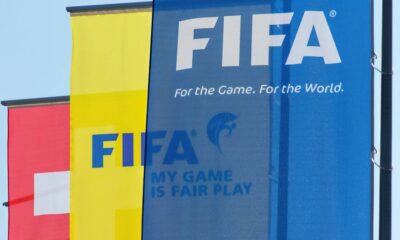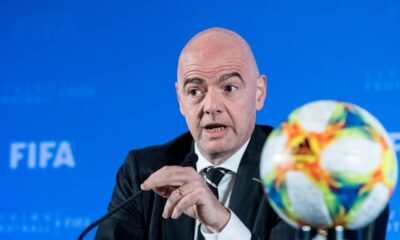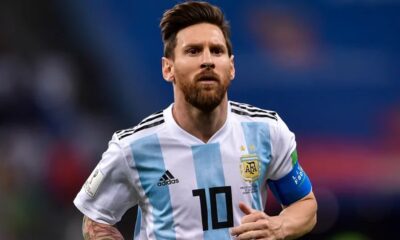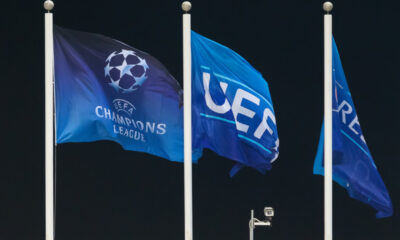Football
World Cup 1986 in Mexico: the hand of God, other political influences, Maradona led Argentina to gold
Mexico hosted its thirteenth World Cup, in nine cities. This championship can undoubtedly be interpreted as a showcase of great Argentine football led by Diego Maradona or a great disappointment for Italy and Brazil. Unfortunately, the 1986 World Cup in Mexico had to do without Czechoslovakia, and the tournament was also accompanied, how else, by various political influences.
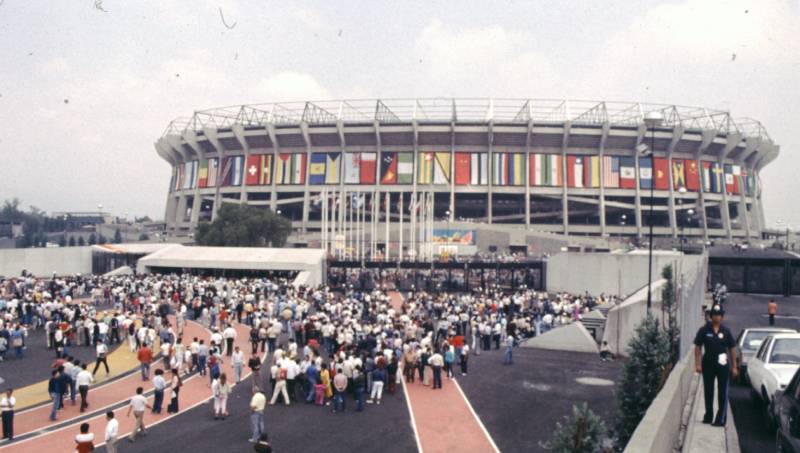
Mexico hosted its thirteenth World Cup, in nine cities. This championship can undoubtedly be interpreted as a showcase of great Argentine football led by Diego Maradona or a great disappointment for Italy and Brazil. Unfortunately, the 1986 World Cup in Mexico had to do without Czechoslovakia, and the tournament was also accompanied, how else, by various political influences.
Ciudad de México, Puebla, Toluca, León, Irapuato, Guadalajara, Monterrey, Querétaro, Nezahualcóyotl – exactly these nine cities hosted the 1986 World Cup in Mexico, which eventually became one of the most sporting tournaments.
121 countries qualified for this World Cup, with 24 teams (14 European, six American, two African and two Asian) taking part in the final tournament.
In terms of European representatives, the 1986 World Championship in Mexico was attended by Portugal, the German Democratic Republic, Poland, France, Italy, Belgium, Denmark, England, Hungary, Northern Ireland, Scotland, the USSR, Spain and Bulgaria.
Argentina, Brazil, Paraguay, Uruguay, Mexico and Canada were the representatives of the American continent. For Africa, Algeria and Morocco qualified for this tournament, and for Asia, Iraq and South Korea.
FIFA has once again changed the playing style of the tournament
Football’s main governing body had already made big changes for the 1982 World Cup in Spain, but made one minor one for this tournament. The second groups, into which teams advanced from the preliminary groups, have disappeared from the game format and have been replaced by an elimination phase.
It should be added, there was also a new third-team table, so four of the six third-placed teams had the opportunity to advance further.
Complications with the organisational structure
One could probably call it chaos. Colombia was the original host of this World Cup, but it was not only the economic situation in the country that prevented Colombia from hosting the World Cup.
FIFA had to find a replacement, and although the USA was initially considered, Mexico eventually won out and took over the role of host country.
It should be noted that if you are interested, you can find out more information and hard-to-follow interesting facts related not only to the hosting but to the whole tournament in our special attached above.
For example, in it we discuss the political situation at the time with regard to the World Cup as a result of the Iran-Iraq war, when the Iraqi national team had just qualified for the tournament without playing their home qualifying match.
Star Maradona, golden Argentina
The Argentina national team played some really solid football at the 1986 World Cup in Mexico. First they won their group, then they knocked out Uruguay 1-0 in the semi-finals, then they beat England 2-1, then they beat Belgium 2-0 in the semi-finals, and in the last decisive match they won 3-2 despite a heart attack equaliser by Germany.
Of course, you can also read more about Argentina’s performance in our special, but what we can’t fail to mention is Maradona’s first goal against England, or the Hand of God, as one of the most famous moments in football history.
Remarkably, we can find a certain parallel with this year’s World Cup in Qatar in the performance and the team of the South American country. Far from being just Maradona, the whole team looked very strong and confident. The final was also in a similar vein.
The Argentinians were leading 2:0, but then came Germany’s lightning equaliser and the drama was on. But it was averted in the 83rd minute by Jorge Luis Burruchaga, who scored the “golden goal” after great work by Maradona in the middle of the pitch.
Germany silver, giant France silver, big disappointment for Italy and Brazil
So the Germans took silver medals from the 1986 World Cup in Mexico, even though on paper they were not as strong a team as France, for example, or played as beautiful football as the Brazilians. Nevertheless, their gameplay could be considered efficient and it is not surprising that they reached the final.
Karl-Heinz Rummenigge, Rudi Völler, Andreas Brehme or Lothar Matthäus – these were the big names in the German squad at the time, who, together with the goalkeeper, were most responsible for the progress of the German national team through Morocco, Mexico and France.
The defending champions Italy, on the other hand, suffered a major disappointment when they were knocked out by France in the eighth round. Of course, we must add that this was with a side that definitely had what it took to win the whole tournament, and which at the time was the reigning king of European football, led by the star Michel Platini.
The Brazilians also played beautiful football, although unfortunately for their fans and the national team itself, handsome football is no guarantee of a “golden” result. And it was France who took care of their end. Platini and co. then at least won the bronze medal match, beating a very good looking Belgium 4-2 after extra time.
Speaking of numbers…
Like the previous championship, the 1986 World Cup in Mexico saw a total attendance of over two million spectators. Specifically, 2,393,031 spectators, an average of 46,020 fans per game.
The tournament featured 52 matches in which 132 goals were scored (an average of 2.54 per match). The top scorer of the championship was England’s Gary Lineker with six goals. Apart from Maradona, the biggest stars were German goalkeeper Harald Schumacher and Danish striker Preben Elkjær Larsen.
It was the Danes who brought a very strong line-up full of great players to the 1986 World Cup in Mexico, but after winning the group stage they had to say goodbye to the tournament in the eighth round, where they lost 1:5 to Spain.
As we write above, you will find many interesting details and insights in our special report attached above. So if you decide to take a look, we wish you a good time, because this championship has really brought a lot.
Sources

